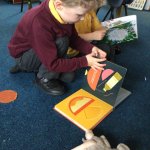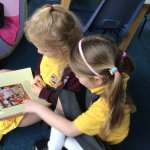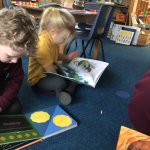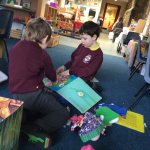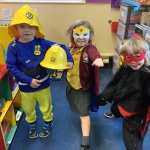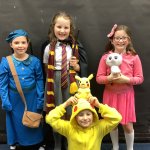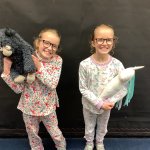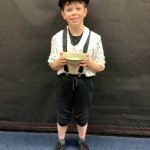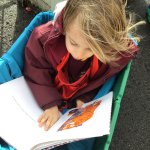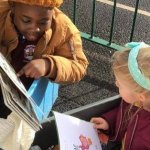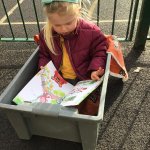“The more that you read,
the more things you will know.
The more that you learn,
the more places you’ll go.”
Dr Seuss
All pupils must be encouraged to read widely across both fiction and non-fiction. This is to allow them to develop their knowledge of themselves and the world in which they live, to establish an appreciation and love of reading and to gain knowledge across the curriculum. Reading widely, and often, increases pupils’ vocabulary because they encounter words they would rarely hear, or use in everyday speech. Reading also feeds pupils’ imagination and opens up a treasure trove of wonder and joy for curious young minds.
It is essential that, by the end of their primary education, all pupils are able to read fluently, and with confidence, in any subject. We aim to ensure children are exposed to, and read, a range of different high quality books of various genres and authors during their time at Brabin’s. Books are accessed through a variety of reading approaches: class novels, shared reading, guided reading, whole class reading and independent reading.
Brabin’s Reading Journey March 2023
Reading at home
As part of school homework, we ask that all children read at home, out loud, to an adult at least 3 times a week. We use a range of reading materials but we predominantly use the Oxford Reading Tree and Collins Big Cat schemes for home reading books. Progression is based on book bands and we pride ourselves on giving our children the opportunity to progress by providing a wide range of genres from a variety of publishers in order to inspire and engage our children’s imaginations.
Each child is assigned a book within their reading level. Children can change their home reading book on a daily basis and choose these themselves from the book banded baskets. Home reading records provide the opportunity for parents to share their thoughts. It is important that you hear your child read regularly and discussion about the texts plays an important role in your child developing comprehension skills. Books are given based on ability, ranging from high quality picture books, early first word and progression through the phonic phases. We approach the teaching of reading in a structured way incorporating synthetic phonics with guided and independent reading based on book bands.
Children really do benefit from regular reading. Please see the recommended reading book lists below, which include texts by a wide variety of well-published authors. Please note that some of the texts are more difficult to read than others. Discuss the books your child reads with him/her and remember that although a book might be difficult for your child to read, he/she will probably still enjoy having it read to them by an adult.
Good luck – happy reading!
Recommended reading book list for each year group.
Reception Year 1 Year 2 Year 3 Year 4 Year 5 Year 6
Individuality through Reading – Dec 2023
Oral blending examples – 2023
Sharing books together 2023
World Book Day – March 2022
Reading for Pleasure -Reception children enjoying using their reading boats – February 2022
Pronunciation of alphabet video 2022
Oxford owl video of how to pronounce all 44 phonics sounds.
At the start of each school year, we invite parents and carers into school for a ‘Phonics Information’ session. We show you exactly how we teach phonics and we always work alongside you to ensure our children are getting the highest quality phonics teaching possible.
